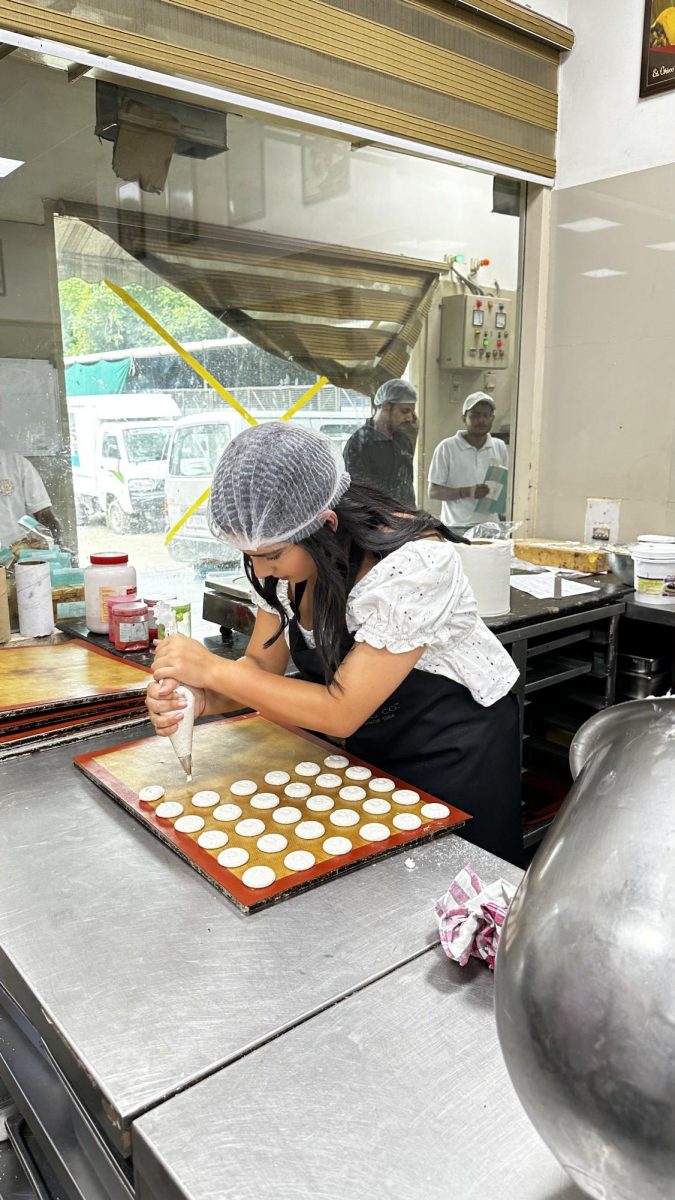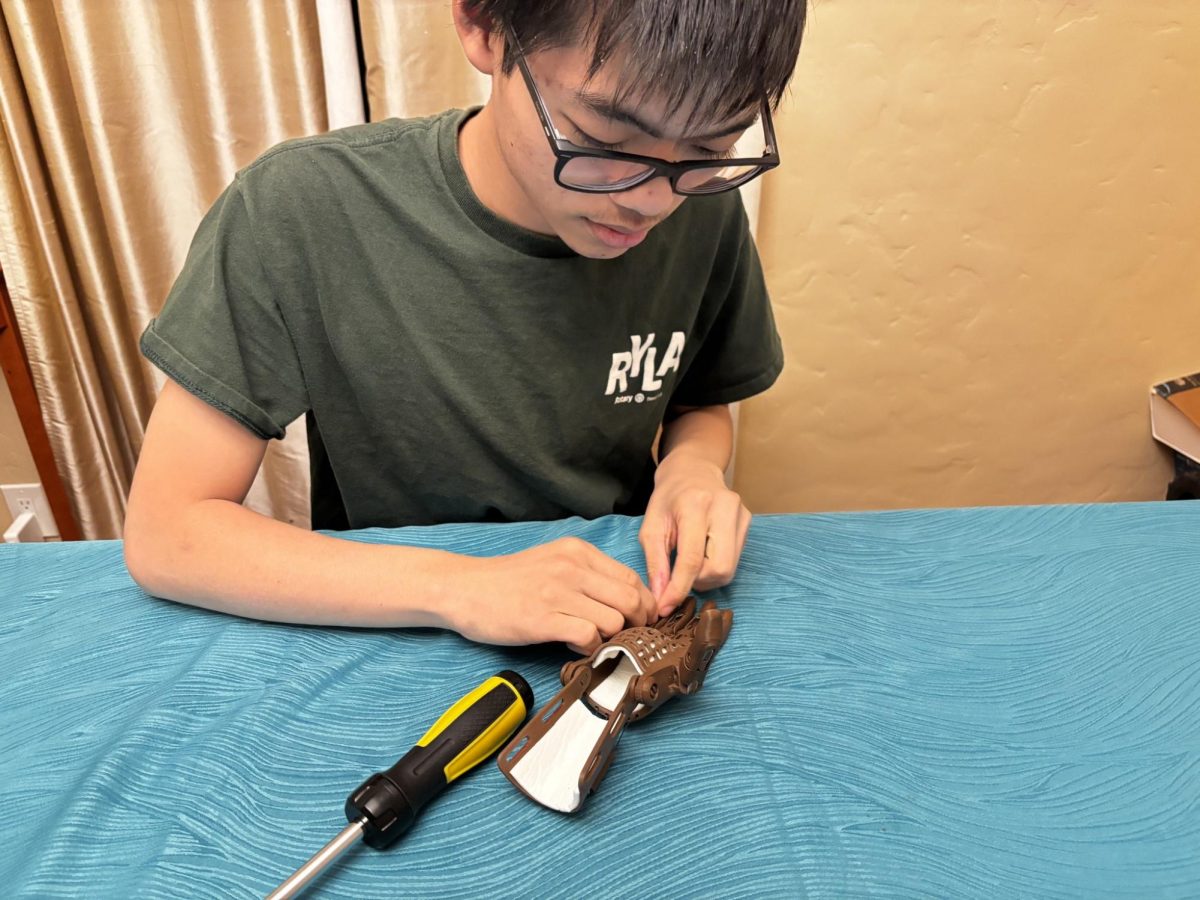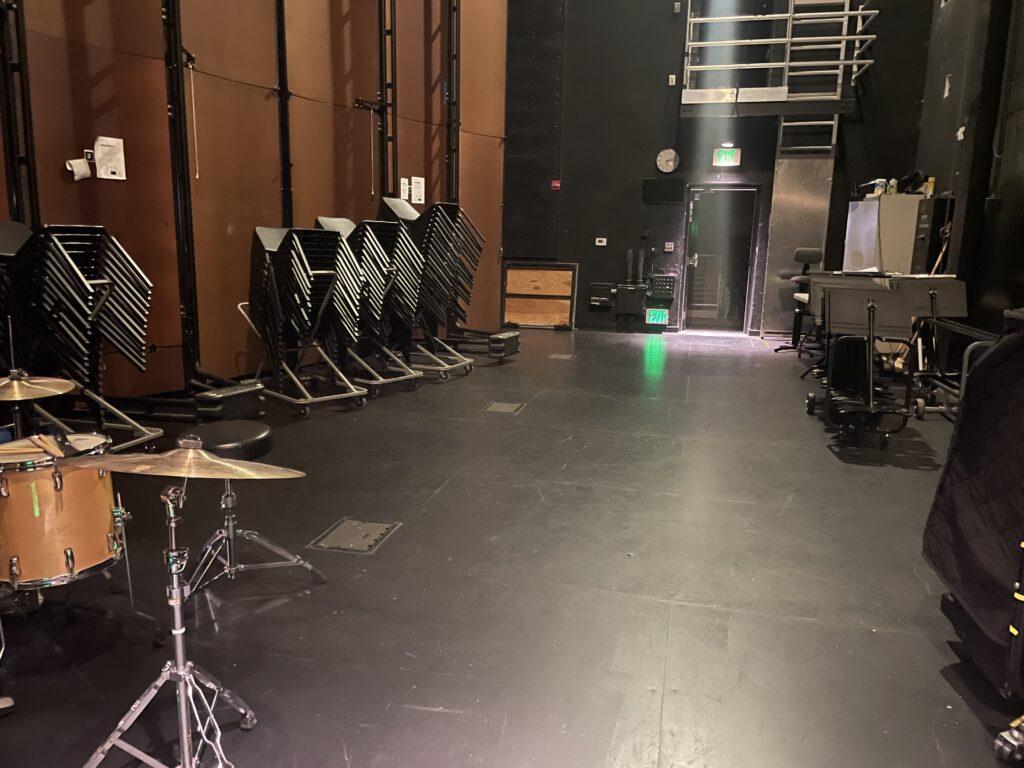The audience fell silent as a plethora of black shadows lugged bags of balloons and various set pieces onto the dimly lit stage during one of the November performances. The figures signaled to each other through glances and hand motions, transitioning to the set for Scene 4 of the school drama program’s fall play “Almost Maine.”
The 44 students who participated in the play — actors and backstage members alike — dedicated dozens of hours in the 10-week preparation for the production, which was performed from Nov. 11-18. To ensure that every detail of the sound and lighting ran to perfection during showtimes, set designers, stage managers and crew members’ eyes were glued to the actors, according to senior Vivienne Brooks, who played the role of Rhonda in the play.
Arushi Maheshwar, the senior stage manager, supervised the majority of the play’s production. In the months leading up to the performances, she attended production meetings mainly led by drama teacher and director Benjamin Brotzman and diligently recorded updates on what each crew member had to do next. On the performance days, her primary role was to act as a line of communication between the actors, technicians, designers and Brotzman.
“As a stage manager, I don’t focus on the director side but rather I make sure the operations run smoothly,” Maheshwar said. “I have to see the big picture of the show in terms of acting, tech design and scene changes.”
She executed cues for lighting, sound rigging and projections during the performance. Meanwhile, two sound technicians, junior Diya Kapoor and senior Eva Semin, closely followed Maheshwar’s cues throughout the play. Kapoor and Semin managed the audio levels of the actors’ microphones to ensure they could be heard by the audience and orchestrated the sounds during pivotal, dramatic moments.
On the other side of the stage, junior deck manager Chloe Mantle managed roughly 20 students doing the technical work behind the production. They were responsible for handling hair, makeup and costume coordination, as well as helping to transfer set pieces and apply microphones. She spent the majority of her time assisting with lighting preparations during tech week, which took place a few weeks prior to the performance and involved backstage members going through all the scenes to check for any potential technical issues. However, she also instructed technicians on where to place set pieces during the various scene changes in the play — such as the arrangement of white picket fences encircling a house at the center of the stage in the first scene of the play.
“Tech week is crucial in preparing for the play,” Mantle said. “We run through all the different lighting cues and scene changes; that is usually when scene change techs are most involved.”
Luckily, no technical issues arose in the four days of performance, largely due to the high caliber equipment available to the drama program and the immense effort put forth by all students and crew members to ensure a smooth production, Mantle said.
Another crucial element of backstage production that contributed to the overall flow of the play was the set design construction, which began weeks in advance. Senior Brock McCutchen, a member of the costume and set design team, spent hours alongside stage manager Cristy Schwanhausser manually building all of the backdrops — including multiple houses and snowy mountains — while junior actor and scenic artist Cosmo Cooper painted them.
Cooper dedicated more than 30 hours to painting and adding texture to large pieces. Actors and technicians also frequently attended “set paint days” where Cooper would assign them basic painting tasks such as layering base colors onto set pieces.
“Seeing my work on stage was an amazing experience,” Cooper said. “It was so gratifying to see the culmination of the crew members’ hard work in the play.”




























